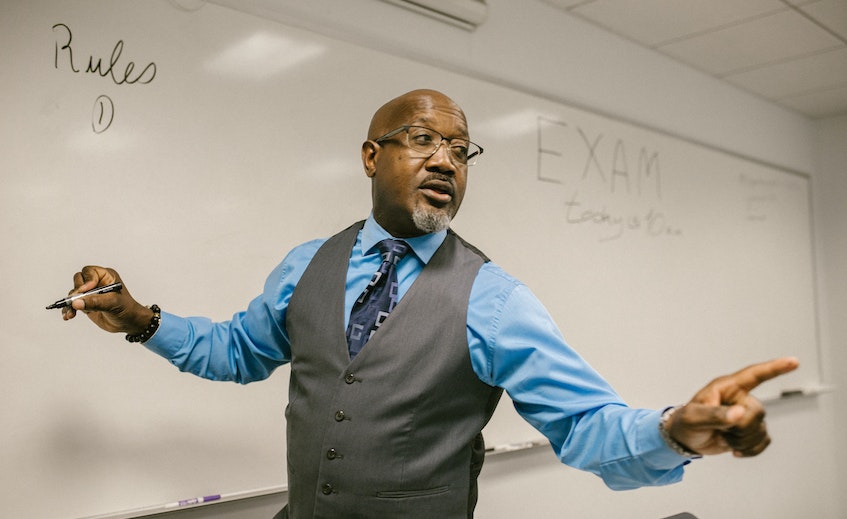
Why do we all use the same methods in WOP?
June 26, 2019
Equality in Academia
July 2, 2019The future of critical perspectives in WOP research: Update from the FOWOP day 2019
by Zoe Sanderson, Laura Röllman, Matthijs Bal, and Severin Hornung
This year’s FOWOP day explored, critiqued, and re-envisioned the conditions in which knowledge in our discipline is created and shared. Two of the sessions focused on people-related aspects of this issue. The equality and inclusion session discussed who is – and isn’t – most often involved in research and teaching in our higher education institutions, and what can be done to redress inequalities in that. The healthy academia session wrestled with the conditions that make it hard for individuals to maintain their mental and physical health as they establish and sustain academic careers. The other two sessions focused more directly on the nature of the knowledge that we routinely produce in WOP. The methodology session challenged the methodological isomorphism of the field, suggesting ways of creating substantive-methodological synergies in future work. The critical WOP session sought to expand our view of what ways of thinking and working might become legitimate in our field. These four areas intertwine to create the potential for WOP that is more sustainable, diverse, and relevant.
The field of WOP has developed unchecked tendencies towards neoliberalism (Bal & Dóci, 2018), managerialism (Prilleltensky, 1994), and inadequate reflexivity about the questions we ask and the likely outcomes of the knowledge we create (Islam & Zyphur, 2006). Critical perspectives – which are many and varied – enrich our field, inviting us to reflect upon our own beliefs and practices, grappling with fundamental questions about the nature of what and how we research. In our session at the FOWOP day, we proposed that critical WOP should promote congruence between the values of a researcher and the values that underpin the research they do, create benefit for less powerful people in organizations and seek to minimize harm, and promote paradigmatic and methodological pluralism. We explored how critical perspectives could enrich core aspects of WOP: teaching, research, and practice and policy.
Many of us shared a vision for more critical ways of teaching in WOP. We want to teach in ways that allow for complexity, pay attention to different stakeholders and perspectives, and consider problems that are truly important to people. At the same time, we want to create a psychologically safe and inclusive teaching environment in which students can develop, learn how to behave in solidarity with others, and practice paying attention to power asymmetries and hierarchies. Creating space for students’ critical thinking is key here, instead of being unintentionally led to suppress their critical thoughts due to upcoming exams or the narrowness of teaching schedules. To these ends, we hope to create a critical WOP teaching manual, for which we would love to receive any relevant teaching resources (please contact Laura (laura.roellmann@uni-leipzig.de) or Andromachi (andromachi.spanouli@vub.be).
To do more critical research, we need a community. This might involve mentoring, collaborations, and trans/inter-disciplinary partnerships with those inside academia, but also involves the co-production of knowledge with those who are normally treated as research ‘subjects’. These partnerships will be key to developing research projects that respond to real-world problems and understanding the nuanced contexts in which these problems occur. We shared a desire for methodological creativity, and for excavating the ideological bases of our existing ways of thinking and working in the field. We are forming a critical WOP research cluster that will plan future events and a journal special issue to promote this community (please contact Severin.Hornung@uibk.ac.at to get involved).
In considering how critical perspectives might be useful in WOP practice and policy development, we recognise the importance of power. We have a responsibility to prevent malpractice and harm in how we apply psychological knowledge in organisations, implying the need for rigorous quality standards in our practice. However, while lack of these standards can cause harm, their existence can also be problematic. If only certain types of knowledge - or people – are considered legitimate, this creates a hierarchy of power that is open to misuse. This points to two potential critiques of WOP practice: a reformist view in which we argue that standards are being misapplied or not met so practice ought to be improved to meet them, and a radical critique in which we argue that certain standards are problematic and ought to be reformed or removed to improve practice. Regardless of our views on this point, we agree that more partnerships between practitioners, organisational stakeholders, and academics would result in better outcomes for those who work in organisations. Please contact zoe.sanderson@bristol.ac.uk if you would like to connect to our work on WOP practice or policy which we will be developing in various ways over the next year.
References
Bal, P. M., & Dóci, E. (2018). Neoliberal ideology in work and organizational psychology. European Journal of Work and Organizational Psychology, 1–13.
Islam, G., & Zyphur, M. (2006). Concepts and Directions in Critical Industrial/Organizational Psychology. In Critical Psychology: An Introduction (2nd ed., p. 17).
Prilleltensky, I. (1994). The morals and politics of psychology: Psychological discourse and the status quo. Albany, NY, US: State University of New York Press.




